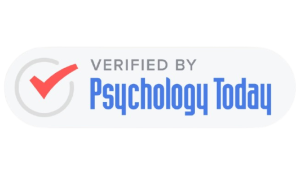
As defined in a Google search, “counseling is the provision of assistance and guidance in resolving personal, social, or psychological problems and difficulties especially, by a professional.” According to the American Counseling Association, it is “a collaborative effort between the counselor and client to help identify goals and potential solutions to problems which cause emotional turmoil; seek to improve communication and coping skills; strengthen self-esteem; and promote behavior change and optimal mental health.
Counseling and therapy are often used interchangeably. Some people consider counseling to be more focused on a single issue and more short-term in duration whereas therapy, also known as psychotherapy, is often focused on a broader and more complex exploration of your thoughts, feelings, and behaviors as they relate to how you view, are motivated, and function in the world.
The word crazy is often associated with a negative or derogatory state of mind in which people have very bizarre beliefs and behaviors. In the psychology world, this would be more accurately labeled as psychotic. Another way to look at it would be to say that when people are psychotic, they are out of touch with reality. Most mental illness do not involve psychosis. Likewise, most people who seek and participate in counseling are not psychotic. While some people who attend counseling do have mental illnesses, such as depression or anxiety, they are very much in touch with reality. Others who receive counseling do not have any mental illnesses but are simply seeking help with relationships, grief, careers, or other common problems of daily living.





